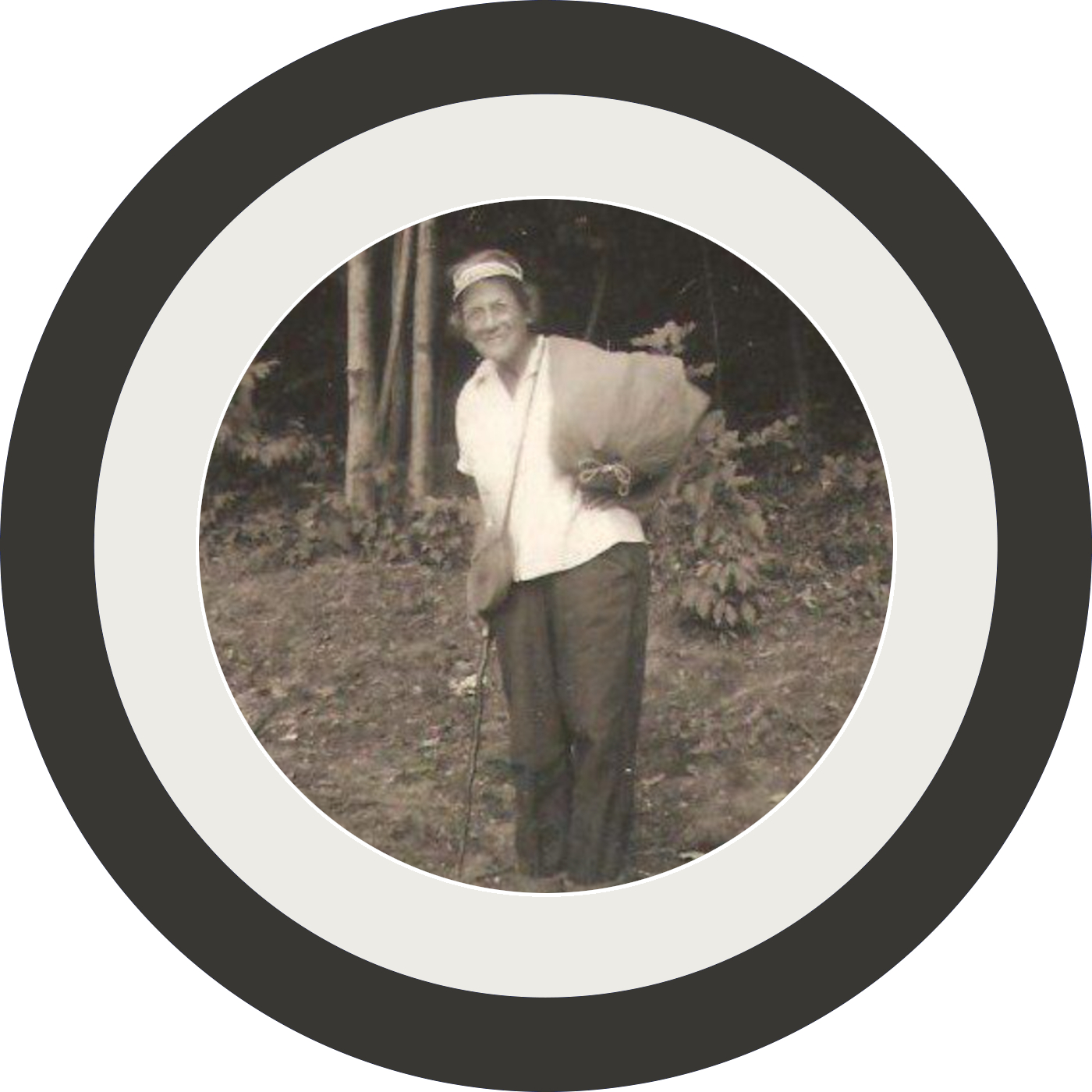Episode 219: Lost Jobs
The Memory Palace is a proud member of Radiotopia from PRX. Radiotopia is a collective of independently owned and operated podcasts that’s a part of PRX, a not-for-profit public media company. If you’d like to directly support this show and independent media, you can make a donation at Radiotopia.fm/donate. I have recently launched a newsletter. You can subscribe to it at thememorypalacepodcast.substack.com.
Notes
Music
- Pipeline by H.Takahashi
- Sad Seine by Lambert
- Dance PM by Hiroshi Yoshimura
Learn about your ad choices: dovetail.prx.org/ad-choices
Press play and read along
Transcript
Speaker 1 This episode of Memory Palace is brought to you by Express VPN.
Speaker 1 Going online without ExpressVPN is like scuba diving in a suit made of meat, which is a great idea if you are trying to meet a lot of sharks. There are sharks in the water, people.
Speaker 1 These are data-stealing sharks.
Speaker 1 Every time you are out and about in the world and you connect to an unencrypted network, you're at a hotel, a coffee shop, in some office waiting room, and you realize you've just got to take care of that one little quick thing.
Speaker 1
And lo, there's free Wi-Fi. Anytime you do that, some shark, a hacker, a fraudster, they are the sharks in this metaphor, can get access to your computer.
It can get bad fast.
Speaker 1
ExpressVPN is an easy way to protect yourself. It is like putting a shark cage, a secure encrypted shark cage around you and your computer.
ExpressVPN is easy, works on all devices.
Speaker 1
It is a simple app. You are just a click away from online security.
And it is cheap, cheaper than ever actually, with plans starting at just $3.49 a month.
Speaker 1 And I literally just spent that on a Diet Coke, which is going to do nothing for my online security.
Speaker 1 Now I have to admit, I kind of used to think that VPNs were for nerds, like, oh, you have a virtual private network. You must be doing some important coding.
Speaker 1 But once you start to notice just how often you are connecting to an unsecure network, you realize that VPNs are really for anyone.
Speaker 1 Secure your online data today by visiting expressvpn.com slash memory. That's exp r e s v p n dot com slash memory to find out how you can get up to four extra months expressvpn.com slash memory
Speaker 1 this episode of the memory palace is brought to you by our friends at factor
Speaker 1 the other day Felt like a Tuesday. I was sitting there thinking about the week ahead, thinking about how I was going to organize the rest of my week to get everything I needed to get done.
Speaker 1
And then I realized it wasn't a Tuesday, it was a Wednesday. And that, my friends, is this time of year in a nutshell.
There is simply too much to do all the time. Just too many things.
Speaker 1
You've got your urine projects, you've got holiday shopping, you have travel and big meals to plan. And this is where Factor comes in.
These are easy meals.
Speaker 1 These are delicious meals, chef-prepared, dietitian-approved. They are ready in just minutes, and there is so much choice.
Speaker 1 Why spend so much time during the week worrying about what you're going to eat when once a week, this is how I like to do it with factor you look at this terrific ever expanding menu and it's not just going to take things off your plate while putting easy delicious meals onto your plate it will take the work out of eating the way that you want to eat whether that is keto or vegetarian or mediterranean whether you're trying to cut galories whether you're shifting to glp one friendly meals Factor is the way to go.
Speaker 1
They have premium seafood choices at no extra cost. They have a whole new array of Asian-inspired meals.
Eat smart at factormeals.com/slash slash memory50off.
Speaker 1 Use code memory50off to get 50% off your first box plus free breakfast for one year. That's code memory50off at factormeals.com for 50% off your first box plus free breakfast for one year.
Speaker 1 Get delicious, ready-to-eat meals delivered with Factor. Offer only valid for new Factor customers with code and qualifying auto-renewing subscription purchase.
Speaker 1 Hey folks, before we get started, I just wanted to say that we are heading to the very end of our annual Radiotopia fundraiser, the time time once a year when I ask you to support the show directly.
Speaker 1 The show survives and thrives because of listener support. This network is unlike pretty much anything else out there in this landscape of corporate-owned podcasts and venture capital backed networks.
Speaker 1 We are all independent artists just trying to make our shows and our art work.
Speaker 1
And you guys do that. If you are in the mode of making your year-end contributions, if you would like to contribute to this show, please do.
Visit radiotopia.fm slash donate.
Speaker 1 This is the Memory Palace. I'm Nate DeMayo.
Speaker 1 A brief note written after reading that the Social Security Administration has removed a number of jobs from a list it had been using in the processing of disability claims.
Speaker 1 Which is as bureaucratic and complex as it sounds, but the gist is this.
Speaker 1 When Americans apply for financial assistance from the government because they are unable to work work due to a disability or debilitating disease or injury, one of the key factors the Social Security Administration uses when figuring out whether to provide benefits or not is whether there is work out there that the applicant can do.
Speaker 1 So if you had a catastrophic back injury, say, that meant you couldn't keep working as a forklift operator in the warehouse of a tractor and heavy equipment parts supplier in Kansas, When you applied for disability benefits, someone at the Social Security Office or a computer program at the the Social Security Office would determine whether you, with your changed circumstance, could reasonably find a new career.
Speaker 1 Too often, however, claims were being rejected unfairly based on the supposed availability of jobs that people simply could not reasonably get.
Speaker 1 But as of June of 2024, thanks to an expose in the Washington Post and rulings in court cases brought by labor lawyers on behalf of people who had been improperly screwed over out of disability checks, the Social Security Administration has removed 157 jobs from its list of possible alternate occupations.
Speaker 1 Some of the jobs were removed because they were deemed too niche or required too much highly specific expertise. And so, imagine Kansen forklift operator.
Speaker 1 Your claim can no longer be rejected because you are not out looking for work as a scuba diver. Job number 379.384-010.
Speaker 1 Nor for job 961.667-010,
Speaker 1 an artist model,
Speaker 1 nor 413.161-014, reptile breeder, nor maxillo facial surgeon, nor industrial organization psychologist, nor historian of the dramatic arts, nor impersonator of popular characters or public figures, nor hog confinement systems operator.
Speaker 1 Noble professions all.
Speaker 1 but ones which can no longer be used as a barrier between government assistance and its rightful claimants. The agency's decision will help many people today and in the future.
Speaker 1 And it marks an official end of sorts to dozens of ways of working that sustained and framed and dictated the rhythm of lives of so many people in the past.
Speaker 1 People who photographed documents such that they could be stored and cataloged on microfilm. People who process those microfilm reels.
Speaker 1 who knew the difference between the processing of microfilm versus other photographic methods, the particulars of chemical formulas, of lighting and drying times, knew whatever gadgets and props, catalog, bought, or handmade, that they used in their work to keep film strips clean while they dried or to attach them to spools or lay them in boxes or wherever they were when they went from the lab to the sales office to a library.
Speaker 1 Steps lost now.
Speaker 1 like the specific smells and sounds that filled those people's days, that maybe they stopped noticing after a while, that if they could somehow suddenly experience now, might maddeline them back to that lost time.
Speaker 1 All those hours and weeks spent, maybe decades, when that was their job, when that was how they spent their time. A time that's gone now.
Speaker 1 Like the scent of the glue and the feel of the newspaper articles beneath one's fingers, the specific heft of the binder that the cutter and paster of press clippings would put those clippings in, and all the little distinctions, all the untransportable expertise they learned on that job.
Speaker 1 All the little tricks of that trade, that is not a trade anymore.
Speaker 1 People still, people who prefer the sound of analog recordings to digital ones or who just work for those who do, some people still wind magnetic tape.
Speaker 1 But it is likely that no one, not a single person in the world, still holds job 726.685-010.
Speaker 1 magnetic tape winder. Maybe anyone who spent their life with job 521.687-086 does not miss the manual sorting of nuts, but who am I to say?
Speaker 1 There may have been meditative pleasures in all the sifting and separating, as there may have been in the hand blanching of almonds, both jobs now done almost exclusively by machines.
Speaker 1 It has been a long time since someone, when asked at a dinner party what they do, responded that they adjust the pins required by certain calculating devices used in the banking industry.
Speaker 1 And maybe that is for the best. Maybe that was the most mind-numbing, soul-sucking of jobs.
Speaker 1 Maybe it is better to be the person who runs the machine that removes loose threads from mittens and gloves than one of the people who used to do that work by hand. Ungloved hand.
Speaker 1
People called puller-throughs. Maybe it is safer or less tedious.
But maybe it was better before. Maybe it was kind of nice.
Maybe the person beside them on the bench always had the best stories.
Speaker 1 Maybe it became their kid's godmother.
Speaker 1 Let this bureaucratic change mark an overdue endpoint to jobs long since vanished from the American landscape. Maybe have a moment of silence for the pneumatic tube operators.
Speaker 1 Those men and women who knew the whom and whoosh of the document, or the envelope of cash, the stack of cancelled checks, sent from one place to another through vast networks of tubes filled with pressurized air, who knew the thunk and the clack of the container that held those memos and messages when they arrived at their destination.
Speaker 1 Missives that one day would be faxed, then emailed, then slacked, then whateve. In New York City alone, there were once 56 miles of pneumatic tubes.
Speaker 1 You can still find them in use now and then, connecting bank tellers and pharmacists to customers. But they are no one's life, and so they have taken job 239.687-014 off that list.
Speaker 1 And they have taken off the professional projectors of celluloid film, who were once Legion. who now barely number enough to fill one of the theaters into which they cast their magic.
Speaker 1 Take off the dance hall hosts and hostesses, the addressers of envelopes, telegraph agents, airline radio operators, wire transfer clerks, the makers of wooden models, and 17 professions related to the building, maintenance, and repair of clocks and watches.
Speaker 1 These were full-time jobs, once done by hand, dexterous and steady, and tired at the end of the day.
Speaker 1 changed at the end of a career.
Speaker 1 Jobs that stopped really existing at some point, as life changed and time slipped away, as it does,
Speaker 1 no matter how well it is kept.
Speaker 1 This episode of The Memory Palace was written and produced by me, Nate DeMayo, in June of 2024.
Speaker 1 This show gets research assistance from Eliza McGraw, who is a proud member of Radiotopia, a network of independent artists-owned podcasts from PRX, a not-for-profit public media company.
Speaker 1 I have a Memory Palace book coming out on November 19th, 2024 from Random House. I'm extraordinarily excited about that.
Speaker 1 And if you want to keep up to date on the podcast, on the book launch, on live appearances as they get scheduled, you can follow me on Twitter and Facebook at The Memory Palace, on Instagram and Threads at The Memory Palace Podcast,
Speaker 1 and in my recently launched newsletter where I'm writing about each episode and
Speaker 1
some stuff related to the book, which you can find at thememorypalaspodcast.substack.com. You are always welcome to drop me a line at nate at thememorypalace.org.
and I will talk to you again.
Speaker 1 Radiotokia
Speaker 1 from PRX.





